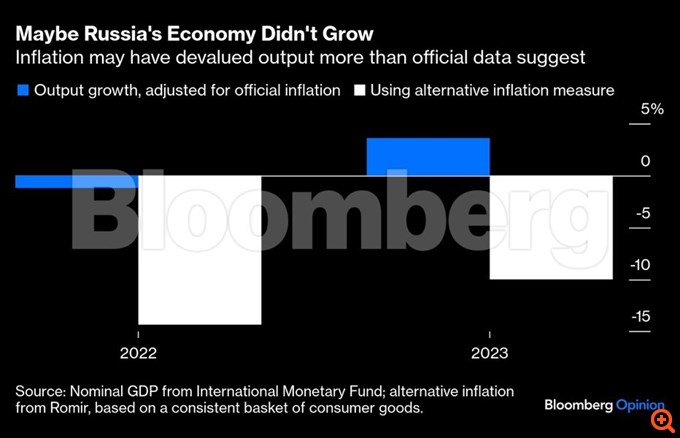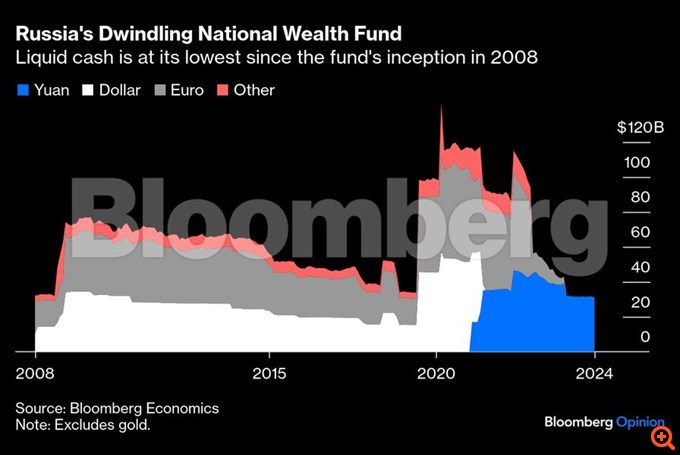Filenews 17 December 2024
This article is written by the Bloomberg editorial team
Russian President Vladimir Putin has tried to project an image of economic strength while waging the war in Ukraine, wanting to give the impression that he can easily overcome Western efforts to oppose his aggression. If President-elect Donald Trump and other Western leaders want to negotiate a sensible peace deal, they should not believe him.
Putin understands better than most authoritarian leaders the importance of economic resilience. Before the invasion, he built a fiscal "fortress" to protect his regime. It included a balanced federal budget, minimal external borrowing, hundreds of billions of dollars in central bank reserves and a $175 billion national wealth fund designed to soften the impact of changing energy prices on the country's fossil-fuel-dependent revenues.
This preparation (along with continued oil and gas exports) helped Putin survive Western sanctions and disprove predictions that the economy would collapse. It managed to provide a huge boost through increasing military spending from less than 4% to (by some estimates) 10% of gross domestic product – providing high-paying jobs in defence production and significant sums to often poor soldiers' families. Along with state-subsidized mortgages (now phased out), this generosity fuelled a consumer and manufacturing boom.
However, now costs are rising. Everything is more expensive: According to estimates, a representative basket of consumer goods in Russia costs about 80% more than before the war. Wages have skyrocketed as much of the workforce has been killed, injured or otherwise unavailable. Rising inflation has forced the central bank to raise its key interest rate to an extreme 21%, crushing investment in civilian operations. The boost received by the economy is running out: According to official data, growth is expected to slow to 1% next year, from 3.9% this year. Adjusted for independent inflation measures, Russia's real output has fallen sharply.

At the same time, Putin's fortress has shrunk. Some $300 billion in foreign exchange reserves are frozen in the West and may never return. The liquid money of the Russian national wealth fund, in Chinese yuan, has fallen to the equivalent of about $31 billion. Excessive lending has weakened banks. This makes Russia much more vulnerable to economic shocks, such as falling global oil prices. The longer the war lasts, the greater the damage – and the greater the need to resort to unpopular measures such as raising taxes or cutting social spending.

Of course, economic constraints alone are not going to force Putin to end the war anytime soon. They do, however, bring to light an advantage that Western countries must exploit. The economies of the US and Europe – taken together – are more than 20 times larger than Russia's. Showing unwavering determination to "overcharge" Putin by pushing him to spend more could eventually get him to the negotiating table and would be an important bargaining chip. Such a commitment – combined with continued supplies of sophisticated weaponry and tougher sanctions – would maximise the chances of reaching a reasonable agreement.
Public patience for helping Ukraine is clearly diminished, both in the United States and in other countries. However, less support now would not end the war on desirable terms. On the contrary, it would embolden Putin and – in all likelihood – prove far more costly in the long run. Russia's economy is weaker than it seems. The West must seize this opportunity while it still has time.
Performance – Editing: Lydia Roumpopoulou
